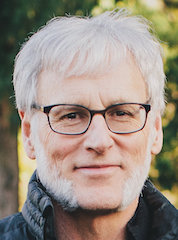"Make every effort to keep the unity of the Spirit through the bond of peace. There is one body and one Spirit, just as you were called to one hope when you were called.”
Ephesians 4:3-4 NIV
Challenge Two: Point Leaders Define Themselves More By What They’re Against Than What They’re For
When’s the last time you caught yourself railing on some church for its faults? “I’d never consider taking my friends into that environment.” Or, “Wow, they’re the most cutting edge 90’s-style church in the city.” Or maybe it was a broader condemnation: “Most churches talk a lot about Jesus without acting much like Jesus.” These kinds of words may slide off your lips too easily if you’re a church planter. And when you get together with other planters, you know too well the sarcasm can get downright ugly.
If you are a contrarian when it comes to the way churches typically operate or portray the faith journey, you’re in good company. That push-back mentality in starters is often a legitimate “holy itch,” a Spirit-imbued agitation prompting one to step forward and bring some needed change. The inherited Church obviously needs many correctives, or we wouldn’t have so many DONEs floating about! (1) And given that many churches have earned their own bad reputation, it’s easy to want to avoid any guilt by association.
Author and missiologist Alan Hirsch’s work on Ephesians 4:11 helps us better understand some of the roots of this non-conformity and reactivity. (2) Hirsch’s research shows that those of apostolic, prophetic or evangelistic orientation often move into church planting and other outwardly-engaging ministries/vocations. Ideally, these “APE” leaders are able to stay in healthy, reciprocating relationships with local churches, as they help protect congregations from turning inward as they themselves find needed support/wisdom from these sponsors. Unfortunately, APE leaders are too often suppressed within a still-prevailing Christendom paradigm where shepherds and teachers are the dominant favorites, Hirsch asserts. (3) And we all know what penned up wild horses eventually do.
Habitual negative contrasting inevitably serves to nurture a core message that emphasizes what you’re against more than what you actually want to stand for.
Maybe you’ve felt like a bridled horse yourself? You can’t wait to get outside the walls and demonstrate your improved version of church—a version that you will resolutely insure won’t be like the church(s) in which you’ve been underutilized. Or maybe you’re just plain uninspired by church as you’ve known it. Whatever the case, it’s not hard to understand why you may feel highly reactive against the established order. But it’s also not hard to see where this can begin to work against your passion to plant a healthy alternative. Habitual negative contrasting inevitably serves to nurture a core message that emphasizes what you’re against more than what you actually want to stand for. People fed up with conventional church or Christianity will indeed find it reassuring to know you see the same faults they see. But there’s a time to turn and face the future and let your dreaming pull you ahead and fuel your rhetoric; a time to channel that reactive energy into crafting a captivating message about the faith community you’d love to see emerge.
To make the turn from defining yourself by what you’re against to what you’re for generally requires intentionality and a good dose of humility. In my experience, crossing that threshold involves two motions, both of which take time and occasional revisiting. The first involves a process of coming to grips with what you’re reacting against, being able to state it clearly and working to release any hold it has on you. The second involves some deep reflection where you capture for yourself a) what you truly love and appreciate about Christ’s body, the Church; and, b) what your version of a local expression of this body might look like when done well, including the intended impact it could have in people’s lives.
For the foolishness of God is wiser than human wisdom, and the weakness of God is stronger than human strength.
1 Cor. 1:25
If you’re still wondering why all the fuss about defining what you stand for in reference to the body of Christ, you might consider this. The work of cultivating a healthy, biblically-informed, ecclesiology (that’s what’s in view here) generally leads to healthier discipleship. (4) As a leader you will bleed off the toxicity that you allow to cling to your soul, and that can taint the mix in ways that could be hard to undo in the future. And we know from Jesus, Paul and other biblical writers that it’s darn near impossible to collaborate for Kingdom gain across a city (cf. John 17:20-23; Ephesians 4:2-6) without working alongside existing churches. We can take the high road and practice what Brian McLaren calls a deep ecclesiology. “A deep ecclesiology seeks to honor the church in all its forms, from highest (most sizable, historic, hierarchical, institutional, liturgical, traditional) to lowest (most ephemeral, relational, small, innovative, grass-roots, organic, disorganized).” (5)
Hopefully, you can see the value of cultivating both a healthy and a deep ecclesiology. Both require a love for the church. And, as per my previous blog post, I hope you’re also firmly embracing the missional vocation of the church in the world. Imagine what your faith community could be like if these were defining elements: 1) we reach toward a high view of what “church” can be; 2) we lock hands with existing churches to express both the Kingdom and Kin-dom of God; and, 3) we invite the triune God to fuel us and send us, by the power of the Spirit, to plant the gospel in the soil we’ve been given to garden. This full-bodied ecclesiology—one that's healthy and deep and missional—is surely a pursuit we can passionately stand for!
Some questions and suggestions for team leaders:
What measures might our team take to articulate a positive image of the body of Christ? Consider: a) exploring as a team the NT writings to see “church” with fresh eyes; b) interacting over the essay “Church Beautiful” by Glasgow planter, Wes White.
In reference to my own attitude regarding the church, what do I need to come to grips with, forgive, let go of, or even repent of? To whom will I look to process this, so that I can be freer to help my team boldly define vision in terms of what we’re for?
How might we as team cultivate a healthy, reciprocal relationship with some churches in our city? How might we help them be involved in our experimenting? What strengths do they have that we might tap into to help fuel the culture we are trying to create?
written by Dan Steigerwald
For more about Dan or to get in touch with him, visit https://artesiaresourcing.com/about/
Notes:
1. DONEs again are those who have left the church (not Jesus or God) and have no intention of returning - for more, see Josh Packard’s Church Refugees (Group Pub, Loveland CO: 2015). Given that a high percentage of planting attempts are aimed at DONEs, it’s easy to see why team leaders targeting them end up casting visions full of anti-church rhetoric.
2. A healthy dose of non-conformity is actually consistent with the persona of most entrepreneurs. In his latest book, Originals (New York: Viking, 2016), social scientist Adam Grant argues that it’s the non-conformists who move the world. They see problems with the status quo, and they push against it, creating new, innovative businesses, nonprofits, communities…you name it.
3. Alan Hirsch brings out well this suppression of the “APE’s” in the body of Christ in The Permanent Revolution (San Fran: Jossey-Bass, 2012), and in latest book, 5Q (Columbia: 100 Movements, 2017).
4. Ecclesiology relates to one’s understanding and appreciation of the “church” - its nature, purpose, and core practices, including the diverse ways it manifests itself as a visible, accessible form or body.
5. Brian McLaren, "The Strategy We Pursue" for the Billy Graham Center Evangelism Roundtable "Issues of Truth and Power: The Gospel in a Post-Christian Culture" April 22-24, 2004, as quoted by Andrew Jones May 31, 2005 blogpost (accessed 3-27-19): https://tallskinnykiwi.typepad.com/tallskinnykiwi/2005/05/deep_ecclesiolo_2.html.
Photo by Amy Peryam on Unsplash


